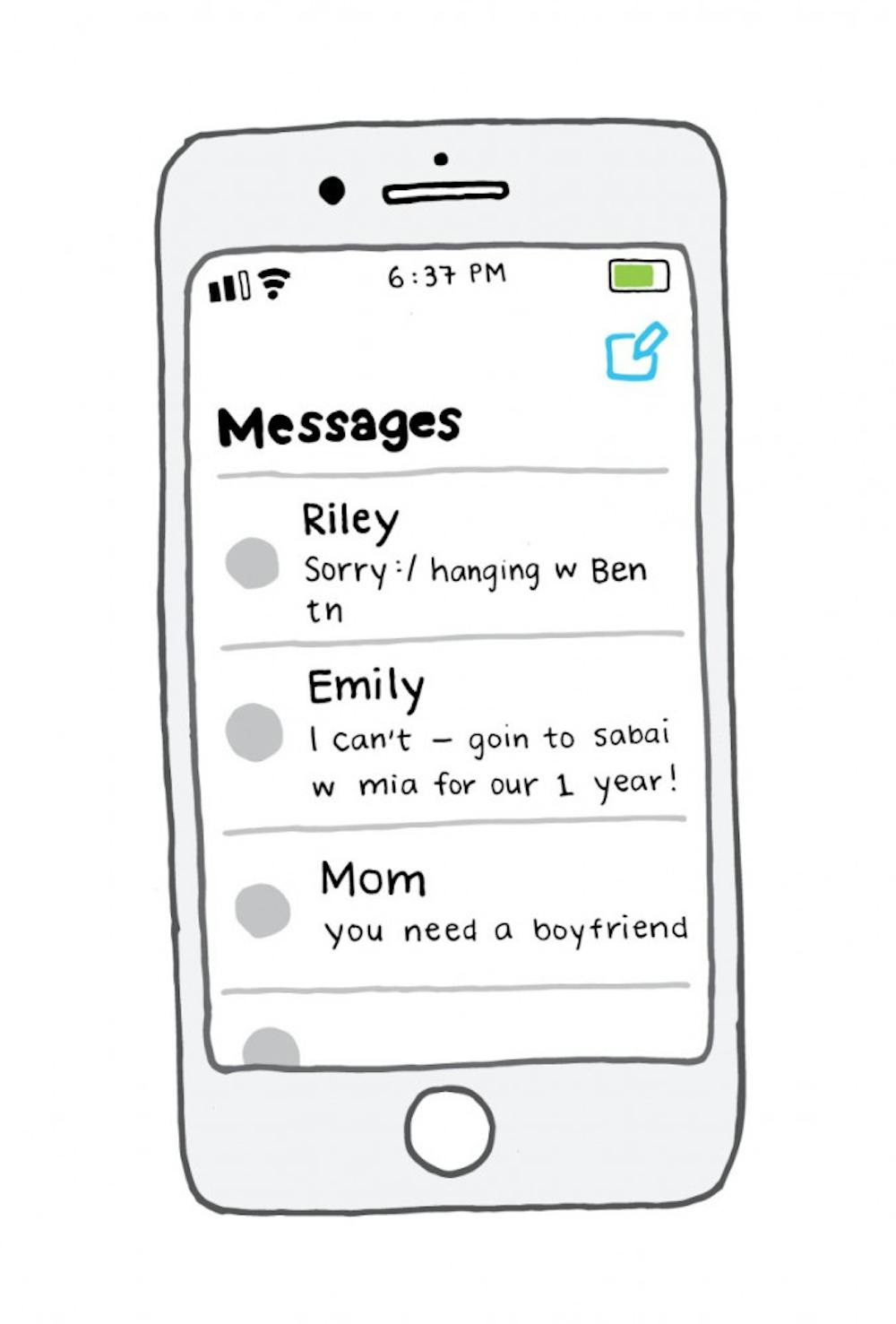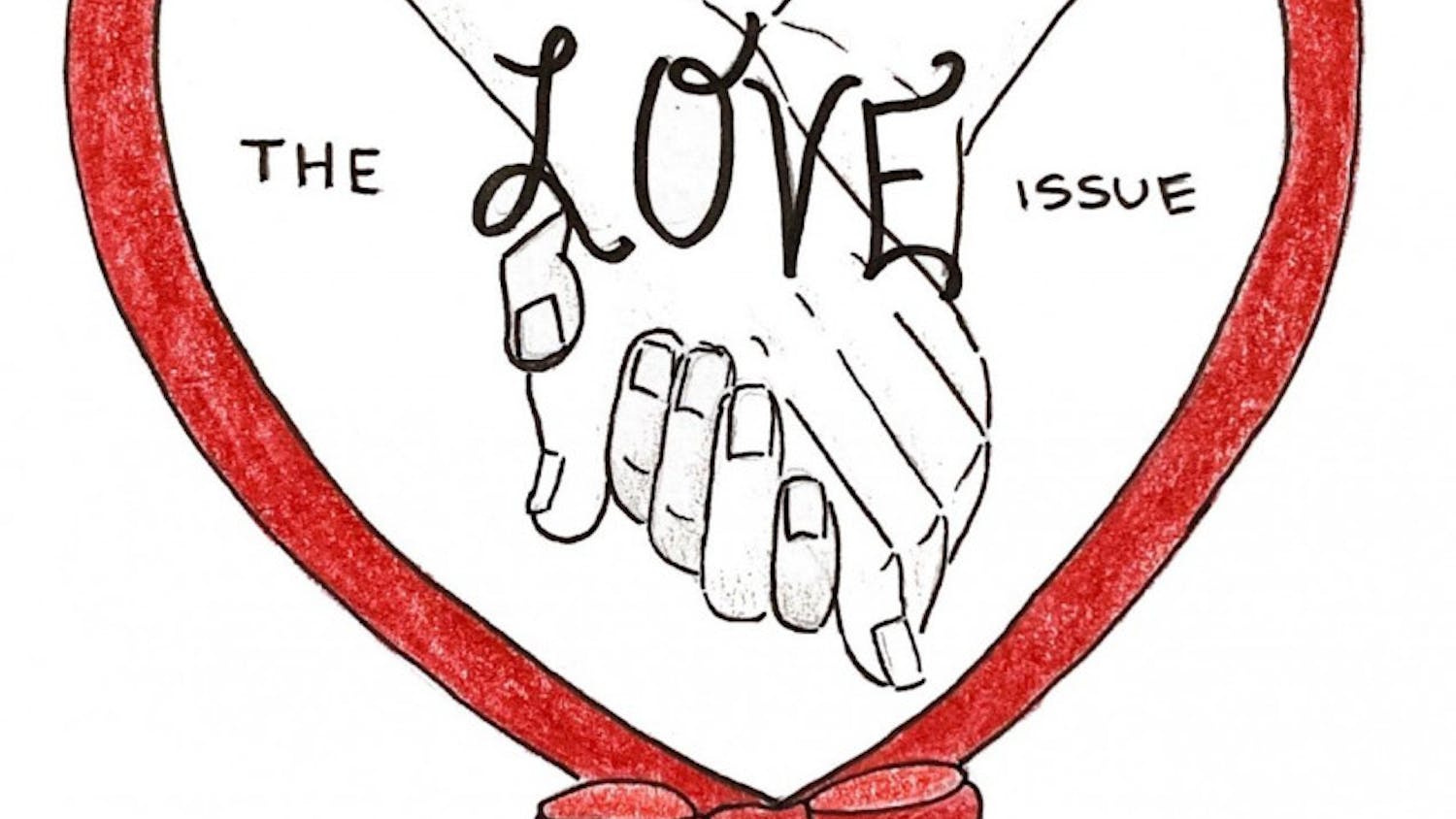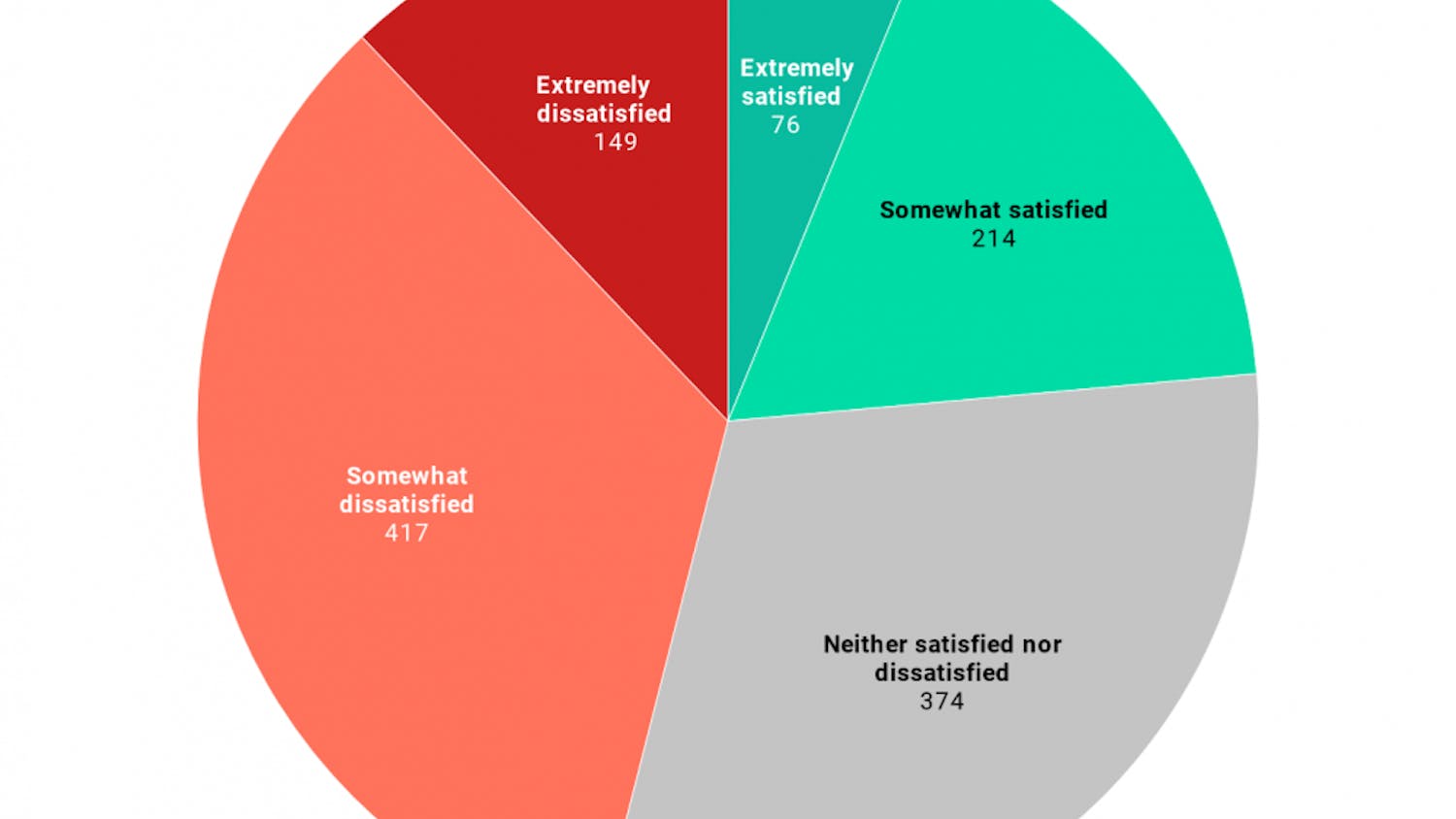Being single is more complicated than it seems. As a result, people often provide unhelpful support: messages that have nice sentiments, but miss the point. For instance, be patient and turn to friends, many say, and you’ll find your burden easier to carry. But being single isn’t about patience or friendships; it's about identity.
Somewhere along the line, society rejected the hegemony of coupled people and created the “happily single person.” People in this relatively new category don’t need a “person”; instead, they focus on themselves and their work. Where February 14 was once a day of roses, hearts and dinner dates, it has evolved for many into various forms of “gal-entines” or singles-awareness day. This is for good reason. It makes much more sense to celebrate our friendships and personal strengths than it does to insist on cliché dinner dates replete with roses and cartoon hearts.
That said, there is now a false dichotomy between those who are actively in a relationship and those who are happily “focusing on themselves.” Where does that leave those who are doing neither?
Our relations to external reality, including other people, make up a large part of our understanding of ourselves. Karl Marx described a similar relationship in his “Economic and Philosophic Manuscripts of 1844.” He described how a person’s work naturally produces “objects which confirm and realize [the worker’s] identity.” For Marx, identity was that one manifests in the external, social, world. In a similar way, our interpersonal relations are manifestations of our identity in the external world. We become identifiable with the people to whom we relate.
So what happens when one tries but fails to build self-affirming relationships? Admittedly, some people rely on their relationships with others to construct an identity, leaving themselves vulnerable to existential crises whenever their relationships change. Others, however, have built sturdy, independent identities, which they want to see mixed with the people and world around them. When attempts to do this fail, it can feel existentially isolating. Psychologist Adam Grant provides an interesting parallel with the “Sad Desk Lunch.”A new study, he writes, says that “working through lunch alone doesn’t bother people as long as it’s their choice. It hurts only when people want connection but can’t find it.” If it is painful when someone can’t share their lunch with others, how much more painful must it be when someone can’t share their identity?
Loneliness, according to former U.S. Surgeon-General Vivek Murthy, is like homelessness. He writes, “To be at Home is to be known.” Just as street addresses show where a house is found among its neighbors, so do our relationships show us where we belong in society. Historian Fay Bound Alberti argues that chronic loneliness is a uniquely modern phenomenon, arising in the industrialization of the 19th century. Within the last three years, Murthy has declared a pandemic of loneliness three times. Former British Prime Minister Theresa May even appointed the U.K.’s first Minister for Loneliness. Articles on loneliness have flooded the internet in response to stay-at-home orders brought on by Covid-19. The struggle to share our identities with others is now more relevant than ever.
I recently rewatched “Dan in Real Life,” one of my favorite romantic comedies. Like my other favorite romance, Hemmingway’s “Fiesta,” the love in this film is characterized by romantic struggle and frustration. This is how love works in the real world. Love is a struggle to understand where we stand vis-à-vis those around us. When relationships falter or fail to take off altogether, it can feel like a rejection of our identity. We feel lonely because we don’t see how we fit in with others. 
My friends were right to tell me that patience and friendships are important. Friendship and, as Marx argued, work can help us express our identities in the outside world. But these should never take the place of romance. The idea that we should turn away from failed romance to focus on ourselves, our friends and our work, robs us of a struggle that helps us to define who we are. Loneliness is the struggle to express ourselves. The only cure is to continue the struggle.
Ben Beese is a member of the class of 2021.5.
On being single

EMMA BROWN
Comments



